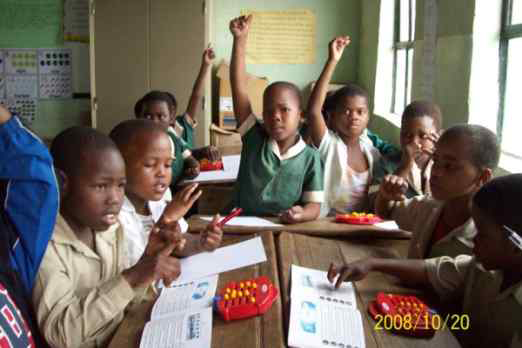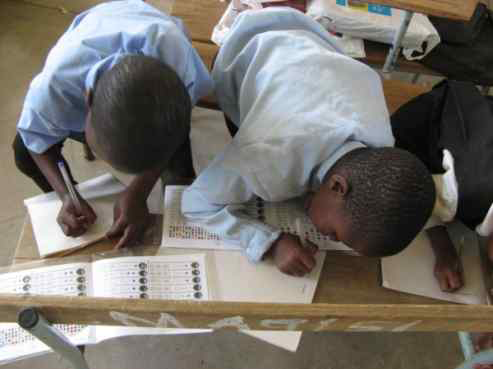 In the poorer and less affluent areas in South Africa, the drop-out rate of learners is quite high, and unfortunately rising. Now, with the rising cost of living and the increasing impact of the global economic crisis, families are struggling more and more to make ends meet. Some parents can no longer afford school fees, and even if scholarship is provided, parents do not have funds for school uniforms, travel costs and associated learning costs. Some families need increased income to survive and thus the Grade 9, 10, 11, and 12 children are terminating their schooling in lieu of paying jobs. Children are thus dropping-out of school at alarming rates.
In the poorer and less affluent areas in South Africa, the drop-out rate of learners is quite high, and unfortunately rising. Now, with the rising cost of living and the increasing impact of the global economic crisis, families are struggling more and more to make ends meet. Some parents can no longer afford school fees, and even if scholarship is provided, parents do not have funds for school uniforms, travel costs and associated learning costs. Some families need increased income to survive and thus the Grade 9, 10, 11, and 12 children are terminating their schooling in lieu of paying jobs. Children are thus dropping-out of school at alarming rates.
These trends must be closely watched, and assistance provided where possible to encourage the leaders of tomorrow – what South Africa so desperately needs, well educated youth, with the skills and capacity to support a healthy and strong economy through meaningful leadership roles.
The Edu-Peg Program strives to meet this need for educated, skilled and engaged youth. The program continues to develop and grow through meaningful interactions with teachers, principals and learners in the marginalized communities served by the program. Edu-peg supports educators to grow in awareness and understanding and creates opportunities for learners to develop skills and greater proficiency across numerous Learning Areas. Edu-peg has programs in Botswana, the Western Cape (SA), Eastern Cape (SA), and KwaZulu Natal (SA). WILD partners with Edu-peg programs in Botswana and KwaZulu Natal.
The schools in KwaZulu Natal are in need of refurbishment and we hope that the needed renovations will soon be possible in these more remote village settings. Overcrowding is a problem in quite a number of schools in these clusters, where teachers are struggling to teach up to 70+ pupils. In many instances, the teachers are not able to move freely around the classroom, and are thus unable to see what the learners are doin g, or to assist or assess the pupils. This is obviously far from ideal.
g, or to assist or assess the pupils. This is obviously far from ideal.
The patience of the teachers and principals is indeed a lesson to those of us who are used to the hurried rush of urban living, and more immediate gratification!
What is also amazing is how neat, clean and motivated these children are. They are often initially shy, but now that many of the children know our trainers, they are more responsive and they display a great willingness to learn and progress.
The schools in KwaZulu Natal need our support to teach these motivated children. Engaging youth now in learning will build a social value for education and the learners will certainly be the leaders of tomorrow. Wilderness in South Africa and around the world needs leaders. Support Edu-Peg and the leaders of tomorrow today >>
